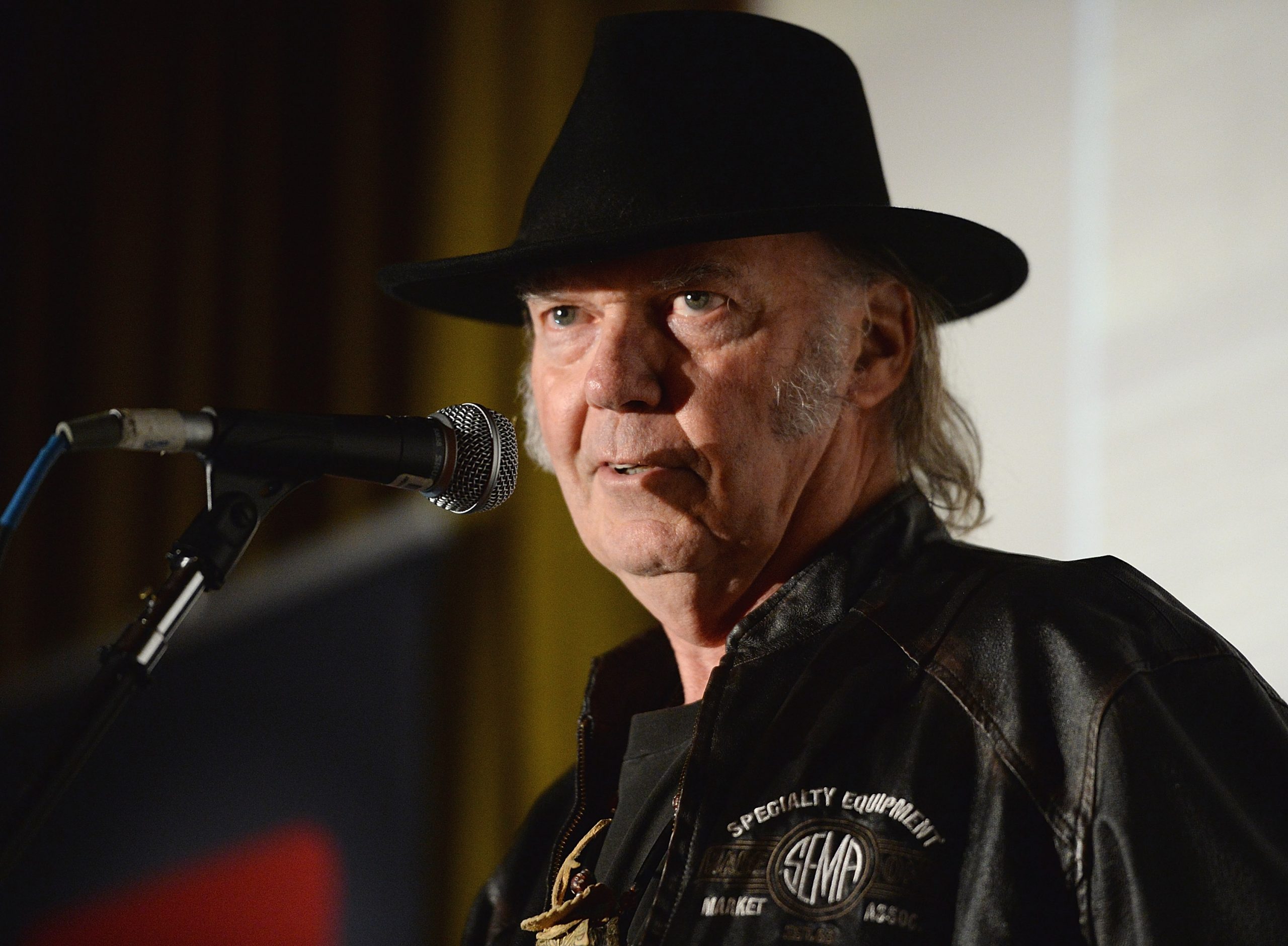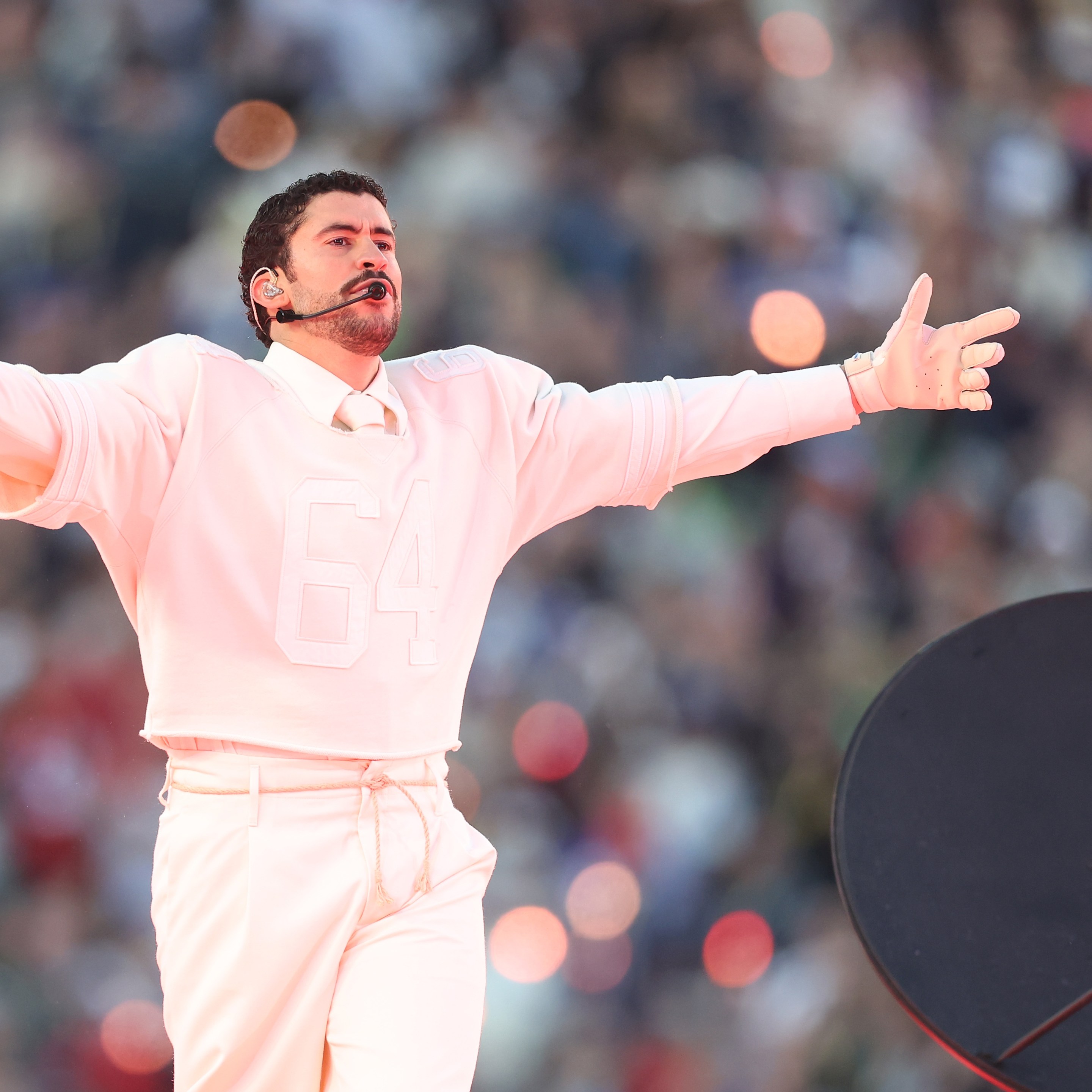This week saw the release of Beats Music, the brainchild of musical minds Dr. Dre, Trent Reznor, and Jimmy Iovine. Now comes word that another long-anticipated streaming music service spearheaded by a musical living legend is coming in March, Neil Young's Pono. And, oh yeah, Young is releasing a pointedly low-tech new album called A Letter Home the same month. Hey hey, my my!
We already knew Pono was coming this year. Now Young's announced the exact launch in what Rolling Stone calls "an epic speech" accepting the President's Merit Award from the Producers & Engineers Wing at the Recording Academy's annual Grammys party last night at L.A. recording studio the Village. At the end of lengthy remarks that touched on the magic and technique behind recording music, Young revealed that he'll be unveiling Pono at SXSW:
Being impressed by something, and how cool it is, and how sharp it is, and how snappy it is, is one thing, and that translates into almost any media. But when you're singing something very soulful from your heart, and the echo is perfect and everything's great and you're using maybe an acoustic chamber and everything sounds great. And then you listen to it and you love it, but you hear it somewhere else and it's gone – that's terrible. We don't like that. Not many of us like that, we're not happy about it. So we're trying to change that, and we're trying to make it better. We're trying to make music sound technically better, and that's what I want to do. So we have a player that plays whatever the musicians made digitally, and that's going to come out. We're announcing that at SXSW, we're introducing it, it's called Pono, and that's my commercial, thank you very much.
Earlier in the speech, Young bemoaned the fact that commercially available music doesn't match the sound quality musicians hear in the studio, comparing your average modern listening experience to staring at a low-grade photocopy of a masterpiece:
Digital is not bad. But Xerox is not good. I always like to say Picasso was really happy to see original Picassos everywhere, but when he went into some places and saw Xeroxes of Picassos, it didn't make him as happy, because he thought people thought that we was making those things. The thing we do is, we make great stuff in the studio and then we kiss its ass goodbye, because nobody's ever going to hear it. That's unfortunate, and it didn't use to be that way. That's something that happened to us – that's an injury we sustained, and it deeply hurt us. So the time has come for us to recover and to bring music back to the people in a way that they can recognize it in their souls – through the window of their souls, their ears. So they can feel and vibrate and so that they can get goosebumps. We cherish those fucking goosebumps. We really need those.
He also opined for a while about the value of quality recording ("Why is that piece of shit in the wire between me and where I'm going? Get that out!") and detailed his memories of recording the vocal track for "Like A Hurricane" at the Village in 1974.
After Young's speech, RS asked him about A Letter Home, which Young described as "one of the lowest-tech experiences I've ever had." When asked to explain, Young simply said, "You'll hear it."
This hasn't been announced or anything, but given the synchronized release dates, it seems possible that A Letter Home will be the first album streaming on Pono. That pairing would be a little strange if the new album is as severely lo-fi as promised and Pono is all about "(making) music sound technically better," but those who read Young's autobiography did report that he can be a little batty.
Also no word whether A Letter Home will feature Jack White, though Young's Facebook says it's not an album of duets.
UPDATE: The album will be released by Jack White's Third Man Records. A post on the label's site says:
Third Man Records unearths NEIL YOUNG's A LETTER HOME
An unheard collection of rediscovered songs from the past recorded on ancient electro-mechanical technology captures and unleashes the essence of something that could have been gone forever. — Homer Grosvenor






